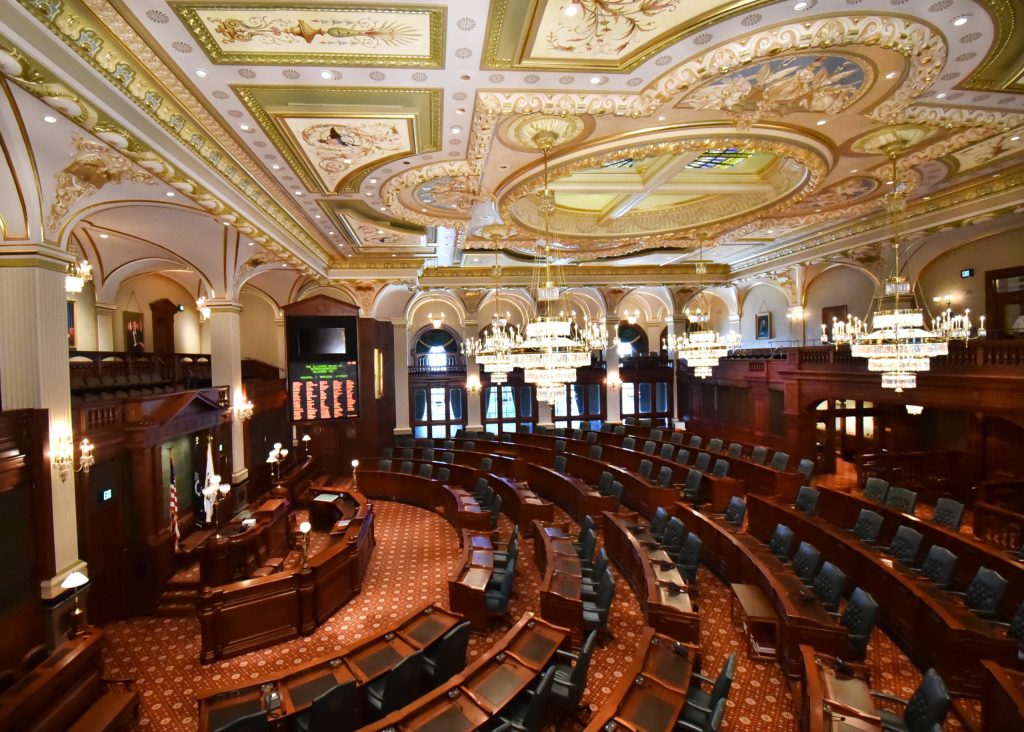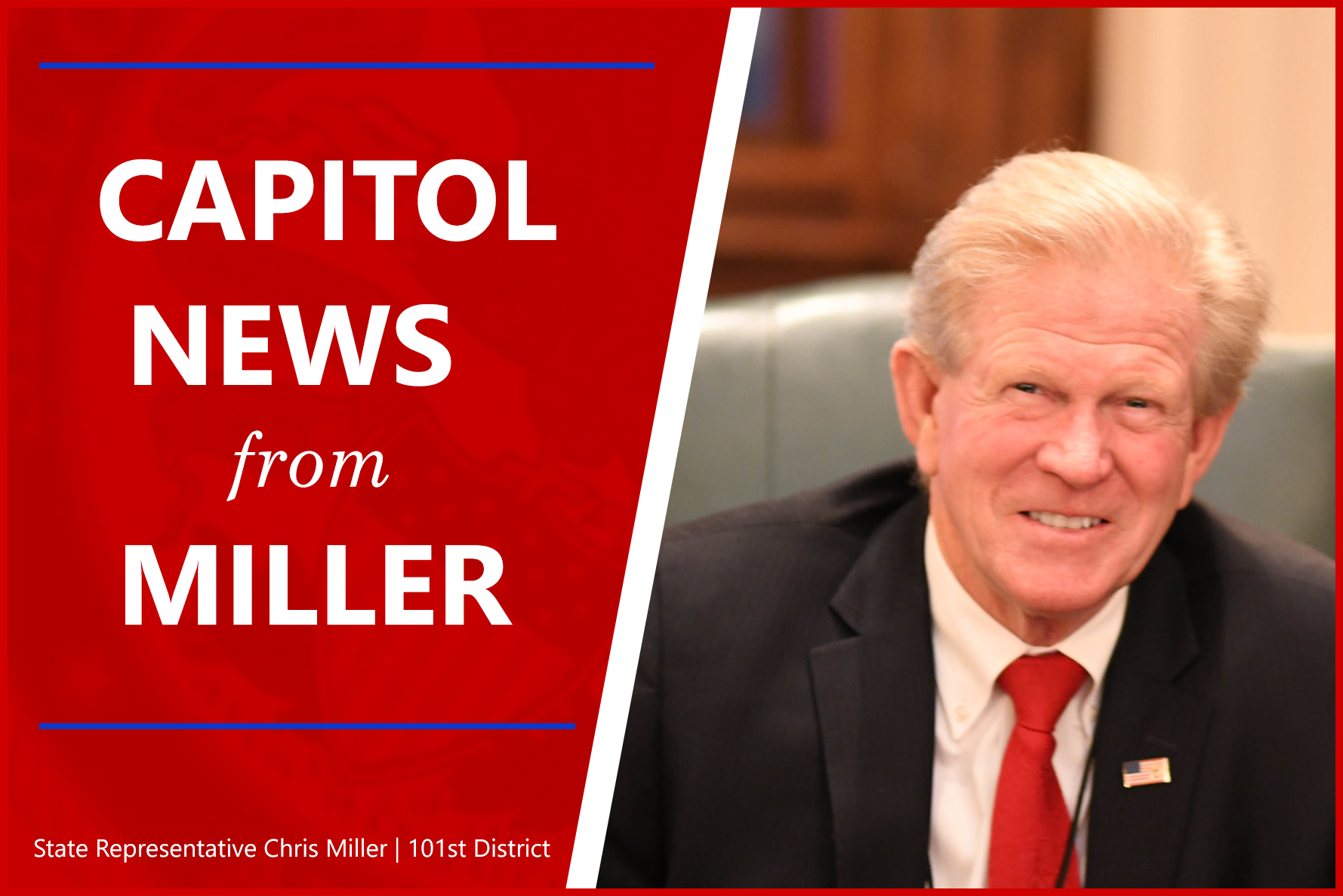STATE GOVERNMENT
Gov. Pritzker splits up one of his own troubled departments. The Department of Children and Family Services (DCFS) has come under severe criticism from child welfare advocates, from the press, and from courts that have taken cases of individual child rights under advisement. Resigning DCFS Director Marc Smith has faced numerous contempt of court citations, based on cases involving individual children resident in Illinois, for contempt of court. The troubled agency has the duty to oversee Illinois parent-child relationships when a child’s welfare is challenged or threatened. They also, under existing law, inspect and license child care service providers. Other State agencies oversee preschools and oversee early interventions in the lives of children who live in families that have not been designated as neglectful or abusive. For children designated as eligible for early interventions of this type, the children under this level of care are seen as needing extra help to succeed in their transition from preschool to elementary school.
Although DCFS currently has a record-high taxpayer-funded employee headcount of 3,148 employees, reports of agency inaction in the face of child abuse and neglect continue to flood into the headlines and the district offices of the Illinois General Assembly. House Republican members have spoken out against DCFS inaction in the face of child abuse, neglect, and deaths.
Governor Pritzker’s proposal and executive order will create a new State agency to inspect and regulate child care service environments, preschools, and early intervention programs. Pritzker’s office has already set up the “Governor’s Office of Early Childhood Development.” This Office’s areas of responsibility will now be elevated into a new Early Childhood Program Agency.
The General Assembly has the power to review the executive order creating the new Agency and, if the creation is contrary to overall State policy, the General Assembly can strike it down. The General Assembly will also be asked to appropriate taxpayer funds for the new agency. Pritzker’s proposal was unveiled on Tuesday, October 24.
GENERAL ASSEMBLY

The first week of Veto Session concludes in the Illinois House. After the first week of veto session in the Illinois House concluded Wednesday afternoon, there are still a number of priorities that House Republicans are looking ahead to solve in the coming weeks. One of those, is addressing Senate Bill 76, which was vetoed by the Governor this summer. The bill would lift the 36-year ban on new nuclear energy construction permits.
Since 1987, Illinois has prohibited new nuclear construction. However, Illinois remains as a nuclear power with 11 current operating reactors, the most of any state. Illinois is in the top three states with 54 percent of its energy generation being nuclear, while also having the most generating capacity (11.6 gigawatts) of any state.
“I think a shared priority for both Republicans and Democrats in the House and the Senate was a veto of SB-76 and that was the nuclear bill,” said House Republican Leader Tony McCombie. “I have hopes that that bill is able to be presented again and have another vote because it was passed by both the House and the Senate by a strong majority.”
“Even if this bill does pass, there are a lot of guidelines through the state and through the federal government, so we are far off on having anything done in the state concerning nuclear,” she said. “If we don’t lift the moratorium, we can’t even begin that.”
McCombie and House Republicans support a pathway that will provide affordable, reliable, and sustainable energy… and that is through lifting the moratorium on nuclear power.
House Republicans are demanding action on the Invest in Kids program, the State-backed scholarship program that incentivizes private doners to give money to scholarship funds that help students attend private schools across Illinois. The Invest in Kids program will sunset on December 31 of this year if it is not extended by the General Assembly. Invest in Kids has helped thousands of Illinois students attend schools where they are challenged and encouraged to reach their maximum potential.
House Republicans show support for Israel. House Minority Leader Tony McCombie recently spoke in support of Israel in a speech she gave on the House Floor. McCombie filed House Resolution 446, which she asked all members of the chamber to support in order to strongly condemn the violence in the Middle East and stand with Israel as it defends itself against the heinous acts of violence carried out by Hamas terrorists.
Leader McCombie and House Republican members continue to express their unlimited, unwavering support for the families, defenders, and the State of Israel. Earlier this year, McCombie spent time with the Consul General of Israel when he visited the Capitol and spoke to lawmakers in the Illinois House.
House Democrats approve bill that could lead to unionization of legislative staff. The Illinois House and Senate have legislative staff members that are supervised by the four legislative leaders, by the Clerk of the House, and by the executive directors of certain nonpartisan committees and bureaus who answer to the four legislative leaders. Up until now, these staff members have worked outside the confines of the laws and structures that govern organized labor.
The Legislative Employee Labor Relations Act, if it is approved by the Senate and signed by Gov. Pritzker, would take steps to bring Illinois legislative staff under these laws and structures. These employees could sign union cards, choose representatives for collective bargaining, pay union dues, and potentially go out on strike. Workers covered by this Act could include district office staff hired by legislators. HB 4148 was approved by the House on Wednesday, October 25. The House vote was 74-35-04. Most House Republicans voted against HB 4148, for several reasons, the first being that the legislation and unionization effort is being led by a small group of House Democratic staff.
Additionally, passage of this legislation could create problems with General Assembly operations during legislative sessions. Many questions about this proposal remain unanswered.
BUDGET and IMMIGRATION CRISIS
llinois as a Sanctuary State Has Created a Humanitarian Crisis. Due to the TRUST Act, which was enacted in 2017, Illinois has become a sanctuary state for undocumented immigrants. Law enforcement agencies are prohibited from cooperating with federal immigration authorities to detain or deport these individuals.
The crisis at the southern border can no longer be ignored. In September alone, the U.S. Border Patrol apprehended more than 200,000 migrants crossing the U.S.-Mexico border unlawfully.
There are approximately 628,000 undocumented immigrants in Illinois, costing taxpayers nearly $3 billion annually. The situation is so dire that Democratic leaders in Illinois have reached out to the White House for financial help while also asking for a federal coordinated effort to control the massive influx of undocumented immigrants at the southern border.
The current migrant influx into Chicago has reached a crisis point from humanitarian, safety, and cost aspects. Since the first group of migrants sent to Chicago on a bus from Texas arrived nearly 15 months ago, more than 18,500 people have made their way to Chicago. More than 2,900 undocumented immigrants are living on the floors of police stations and Chicago’s airports awaiting placement in shelters.
The migrant crisis is projected to cost Chicago taxpayers $361 million in 2023. In a city already plagued by violent crime, migrant encampments have exacerbated the violence in Chicago. There have been a number of reported incidents, but it is unclear how many of the migrants have become victims of violence or have committed violent acts since arriving in Chicago. Due to the TRUST Act, law enforcement personnel are not allowed to ask a person’s status, so that information is not able to be tracked.
In response to this crisis, two Chicago aldermen have introduced a resolution to place a referendum on the March ballot that asking voters if Chicago should remain a sanctuary city. In a recent poll of Chicago voters, 46 percent of those polled said no more sanctuary city, 39 percent said Chicago should remain one and 14 percent were unsure.
As a sanctuary state, Illinois is giving undocumented immigrants access to free health care benefits, driver’s licenses, housing assistance and other benefits. Earlier this year, it was reported that the estimated cost of the health care benefits program for undocumented immigrants had ballooned to $1.1 billion. Illinois House Republicans have called for a moratorium on enrollment and expansion of this benefits program, as well as an audit of program costs.
With resources drying up and enrollment caps being hit already, the Illinois Department of Healthcare and Family Services recently announced a temporary pause on new enrollees in the Health Benefits for Immigrant Seniors program. An analysis from September 2023 shows that the health benefits for immigrant adults program is expected to cost $831 million in FY 2024, which is $281 million more than the $550 million amount appropriated for the program.
Illinois House Republicans have introduced legislation aimed at addressing the humanitarian and budgetary crisis in Chicago. House Bill 4187 repeals the Illinois TRUST Act, ending our status as a sanctuary state for undocumented immigrants. It would allow our local law enforcement agencies to cooperate with federal immigration authorities. This legislation is necessary to change the narrative away from Illinois as a land of bountiful government benefits for migrants. The time has come to end Illinois’ status as a sanctuary state for undocumented immigrants. We must repeal the TRUST Act now!
HUNTING
Preparations continue for firearm deer season. The license dates for standard (non-muzzle-loading) firearm deer hunting season start on Friday, November 17. Many hunters, armed with bows, have already climbed up into their deer blinds, as the Illinois archery season began October 1. The complex rules that govern the various families of Illinois deer hunting licenses all come together with regards to antlered deer; no hunter, including though holding a variety of permits and licenses, may harvest more than two antlered deer during a year.
In the fall 2022 deer seasons, Illinois hunters reported to have taken 158,010 deer, up from 146,438 in the fall 2021 seasons. Many sections of Illinois offer trophy-quality hunting opportunities.
DOWNSTATE
2023 harvest moves toward close. The “Illinois Crop Progress” report from the U.S. Department of Agriculture shows rapid progress at finishing up the 2023 harvests of corn and soybeans. Relatively dry weather has enabled heavy machinery to keep moving in the fields. For the week ended Sunday, October 22, 70% of Illinois corn was harvested (up from 52% one week earlier) and 80% of the beans were harvested (up from 61% one week earlier).
Dry conditions continue to affect Illinois fields, including pastures and winter wheatfields where growth will continue until freezing temperatures hit. Operators of pastureland reported not-so-good grass conditions to the USDOA this week, with 45% of Illinois pastureland reported to be in “very poor” (21%) or “poor” (24%) condition. Recent precipitation has been below-normal in every sector of Illinois, with particularly challenging dry conditions in sectors of southern Illinois.
